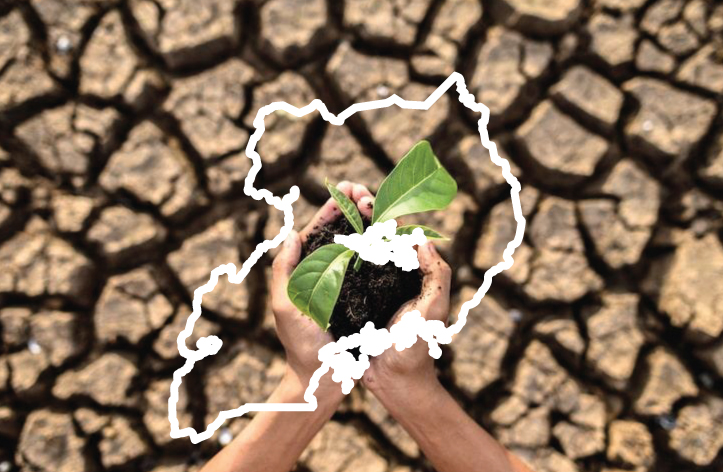Climate justice is more than a slogan; it is a moral imperative. For Africa, and Uganda in particular, the climate crisis is not only an environmental issue, it is a development challenge, a justice issue, and a matter of survival. While the Global North pushes for decarbonisation and net-zero commitments, African countries find themselves navigating a narrow path between the urgency to address climate change and the equally pressing need to uplift millions out of poverty.
Uganda’s story exemplifies this paradox. On the one hand, the country has taken commendable steps towards renewable energy adoption and sustainability from investments in hydroelectric power to the formulation of green growth strategies and climate laws. On the other hand, Uganda is investing heavily in its nascent oil and gas sector, a move seen by some as incompatible with climate goals. However, this juxtaposition needs to be understood within the broader historical and geopolitical context.
Africa contributes less than 4% to global greenhouse gas emissions, yet it bears the brunt of climate change. Droughts, floods, erratic rainfall patterns, and food insecurity are intensifying across the continent, affecting those who have contributed least to the crisis. In Uganda, climate-induced disasters are already displacing communities, undermining agriculture, and threatening livelihoods. Despite this, the country is being asked to slow down its development ambitions and forgo its fossil fuel resources in the name of global climate targets: -targets that were set without fully acknowledging the development realities of the Global South.
The principle of climate justice demands a different approach, one that centres equity, historical responsibility, and differentiated obligations. Uganda, like many African countries, is not just transitioning from fossil fuels to renewables; it is transitioning from energy poverty to energy access. Nearly 600 million Africans still lack access to electricity. In Uganda, only about 60% of the population has access to energy, both clean and unclean. For many, the energy transition does not mean switching to cleaner sources, it means gaining access to energy for the first time. That is the real meaning of energy transition in an African context.
Uganda has set an ambitious target of reaching net-zero emissions by 2065. Yet in the meantime, it expects to extract approximately 230,000 barrels of oil per day from the Tilenga and Kingfisher projects to be transported via the East African Crude Oil Pipeline (EACOP). These projects are expected to contribute significantly to economic growth boosting Uganda’s GDP by up to 10% and attracting over $4 billion in investment. The government argues that revenues from oil can be used to fund renewable energy development and social infrastructure: -a classic example of using extractive resources to leapfrog into a green economy.
Moreover, Uganda is actively working to ensure that its oil and gas development follows a low-carbon trajectory. A no-flaring policy, electrification of oil infrastructure using hydropower, and the development of Euro-5-compliant fuels are part of the strategy to minimise emissions. The country is also investing in reforestation, with plans to plant 40 million trees and sequester one million metric tonnes of CO₂ through the Carbon Abatement Programme. LPG production from the refinery is expected to replace charcoal and firewood, easing pressure on forests.
But these efforts raise a difficult question: does investing in fossil fuels, even responsibly, justify emitting greenhouse gases in an era of climate urgency? Uganda’s Minister of Energy recently addressed this at the recent 10th Energy Convention, noting that the Global South cannot be held to the same standards as the Global North. The latter has already exploited its resources, built its economies on fossil fuels, and now demands that Africa abstain from doing the same. As the Minister put it, “First In, First Out”, those who polluted first should be the first to exit.
Uganda is not asking for a blank cheque. It is asking for space: -space to grow, to develop, and to build its resilience. Climate justice, in this sense, must recognise Africa’s right to development. It must call for increased climate financing, technology transfer, and capacity building, rather than punitive restrictions that hinder progress.
Uganda is positioning itself as a regional energy hub, not just through oil and gas, but by expanding renewables, investing in hydropower, and advocating for regional energy security. The longest heated pipeline in the world from Eldoret to Kigali via Kampala is being constructed not only to move fuel but to assert Uganda’s strategic role in East Africa’s energy future.
At its core, climate justice is about ensuring that the energy transition is not a new form of colonialism. It must empower, not restrict; include, not exclude. Uganda’s approach balancing development, sustainability, and climate responsibility may not be perfect, but it reflects the complex choices facing the Global South. The real test for the international community is whether it is ready to support such nuanced, just, and context-specific transitions.
In this decisive decade for climate action, fairness must be the foundation. And for Africa, climate justice must mean dignity, sovereignty, and the right to chart our own sustainable path.


